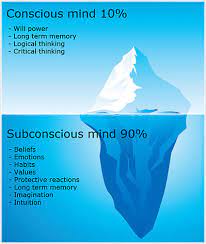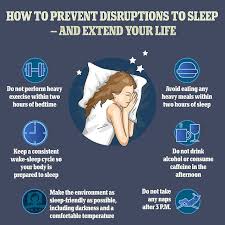The Power of Hypnotherapy for Depression
Depression is a serious mental health condition that affects millions of people worldwide. While traditional treatments such as therapy and medication can be effective, some individuals may seek alternative approaches to managing their symptoms. One such alternative therapy that has gained recognition in recent years is hypnotherapy.
Hypnotherapy is a form of complementary therapy that utilizes guided relaxation techniques to create a state of focused attention and heightened suggestibility. During a hypnotherapy session, a trained therapist helps the individual enter a trance-like state where they are more open to positive suggestions and imagery.
When it comes to depression, hypnotherapy can be used as a tool to address underlying emotional issues, negative thought patterns, and self-limiting beliefs that contribute to the individual’s feelings of sadness, hopelessness, and despair. By accessing the subconscious mind through hypnosis, individuals can explore and reframe deep-seated beliefs that may be holding them back from experiencing emotional well-being.
Research has shown that hypnotherapy can be effective in reducing symptoms of depression by promoting relaxation, enhancing self-esteem, improving coping mechanisms, and fostering a more positive outlook on life. Additionally, hypnosis can help individuals develop healthier habits and coping strategies to better manage stress and anxiety.
It’s important to note that hypnotherapy should not replace traditional treatments for depression but rather complement them as part of a comprehensive care plan. Before considering hypnotherapy as an option for managing depression, individuals should consult with their healthcare provider or mental health professional to ensure it aligns with their overall treatment goals.
If you or someone you know is struggling with depression and looking for alternative ways to cope with symptoms, exploring the potential benefits of hypnotherapy under the guidance of a qualified therapist may offer new insights and pathways towards healing.
Understanding Hypnotherapy for Depression: Suitability, Efficacy, and Benefits for Mental Health
- Who is not suitable for hypnotherapy?
- Can hypnosis be used to treat depression?
- Is hypnosis good for mental health?
- Can hypnosis help depression and anxiety?
Who is not suitable for hypnotherapy?
Individuals who are not suitable candidates for hypnotherapy typically include those with certain mental health conditions such as schizophrenia or psychosis, as hypnosis may potentially exacerbate their symptoms. Additionally, individuals who have difficulty following instructions, those under the influence of drugs or alcohol, and individuals with a history of trauma that may be triggered during hypnotherapy sessions may not be ideal candidates. It is important for individuals considering hypnotherapy to discuss their medical history and any concerns with a qualified healthcare provider or hypnotherapist to determine if hypnotherapy is a suitable treatment option for them.
Can hypnosis be used to treat depression?
Hypnosis can indeed be utilized as a treatment for depression. Through the practice of hypnotherapy, individuals can access their subconscious mind to address underlying emotional issues, negative thought patterns, and self-limiting beliefs that contribute to feelings of depression. By entering a trance-like state during a hypnotherapy session, individuals become more receptive to positive suggestions and imagery that can help reframe their mindset and promote emotional well-being. While hypnotherapy should not replace traditional treatments for depression, it can serve as a complementary approach to managing symptoms and fostering a more positive outlook on life. Consulting with a qualified therapist or healthcare provider is recommended to explore the potential benefits of hypnotherapy in conjunction with other treatment options for depression.
Is hypnosis good for mental health?
Hypnosis has shown promising benefits for mental health, including its potential effectiveness in managing conditions like depression. When used as a complementary therapy alongside traditional treatments, hypnotherapy can help individuals address underlying emotional issues, negative thought patterns, and self-limiting beliefs that contribute to mental health challenges. By accessing the subconscious mind during hypnosis sessions, individuals may experience relief from symptoms of anxiety, stress, and depression. While hypnotherapy is not a standalone solution for mental health concerns, it can be a valuable tool in promoting relaxation, enhancing self-awareness, and fostering positive changes in one’s emotional well-being when conducted by a trained professional.
Can hypnosis help depression and anxiety?
Hypnotherapy has been increasingly recognized as a valuable tool in addressing depression and anxiety. Through guided relaxation techniques and accessing the subconscious mind, hypnosis can help individuals explore and reframe negative thought patterns, self-limiting beliefs, and emotional issues that contribute to their symptoms of depression and anxiety. By promoting relaxation, enhancing self-esteem, and fostering a more positive outlook on life, hypnotherapy can complement traditional treatments for depression and anxiety. It is important for individuals considering hypnotherapy to consult with their healthcare provider or mental health professional to determine if it aligns with their overall treatment plan and goals.




